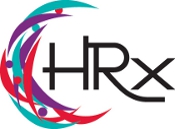 |
Examining and managers encounter every day |
August 2005
Here’s a Sample of Arlene’s Management Training Topics
- Managing the Employee Life Cycle
- Leadership Skills
- Employment Law / Sexual Harassment
- Communication Skills
- Giving On-Going Performance Feedback
- Conducting Performance Reviews
- Interviewing Skills
- Motivation / Employee Relations
- Discipline, Documentation and Termination
- Team Building
- Professionalism and Ethics
- Managing Change
- General Management Skills
- Orienting and Training Employees
- Building Supervisory Relationships
- Presentation Skills
- Time Management
- From Buddy to Boss
How Arlene
Can Help
If you’re unsure what types of training works best in your organization, call Arlene to brainstorm the right approach for your managers.
Some clients have given the list of training topics to their managers to self-assess their own training needs.
This method helps you understand how your people evaluate their training strengths, development areas and interests. It also begins the buy-in process. If your managers are participating in the training program design, they are already acknowledging their commitment to skills development.
If you’re not
having fun
with your
human resources,
call Arlene today
at 952-996-0975
A Simple Managerial Assessment

I’m sure you’ve heard the reference to “Employees leave managers” before. Most of us assume that it applies to other companies but not ours – and certainly not to us as individuals. Hopefully, this is true. But, just in case, I think it’s important to step back to analyze how and why employees are leaving our companies and what we can do about it.
So, let’s ask some key questions. Do you know your rate of employee turnover? Does it reflect your industry’s turnover trends? Are “valuable” employees leaving your company? Does one area of your organization have a steady stream of exiting employees?
These are the types of questions you should be asking yourself regularly as a barometer for your organization’s employee retention. Of course, people forget that sometimes turnover is GOOD for a company. Think about it. If you’re losing poor performers because they don’t fit in your culture, that’s good turnover. If you’re losing quality performers because they don’t fit in your organization, you may have a problem.
Let’s assume you’re losing some quality employeesand the adage above applies – it’s because of your managers. First determine how many managers the employees are leaving (one, some or all). Second, it’s your responsibility to proactively ensure that your managers are doing the best job they can do – not just in their area of expertise, but in the important requirement of managing and retaining their people.
Copyright © 2005 Arlene Vernon, HRx, Inc.
Tackling the Solution Head On
How can you improve your managers’ people management skills? Some organizations offer continuing education programs to keep their employees current in their field, in their “technical” knowledge. That is a vital component to training, but it’s only half the solution.
We need a more direct approach. One service I provide is conducting a monthly series of customized training for managers so they can fine-tune their people management skills. To start, I provide a list of topic areas to help us sequence the training based on logical learning sequences and specific priorities and needs.
The core benefit of this trainingis enhancing each manager’s supervisory knowledge and skills. However, there are additional benefits to the training.
My training style creates an open discussion of “today’s” people issues, so that we’re solving employee relations issues right in the training. The longer the training series, the more we create a solid environment to resolve current issues.
Another key benefit is the team building aspect. The managers, even those who have worked together for long periods, participate in a different dialog than usual. As they share their supervisory experiences, they also share insights and solutions. They begin to support each other in new ways, asking for and giving advice, sharing similar experiences, and coming up with solutions as a team.
Another benefit is group consensus.For example, one manager may think 15 minutes is tardy and another disciplines employees who are one minute late. This type of discrepancy between how managers hold their employees accountable can create employee confusion as well as fairness (and potential discrimination) issues for the organization. By teaming your managers to develop consistent approaches to supervising, you’ve resolved an enormous morale and operational issue.
There are so many more benefits to training your managers: increased manager confidence, positive employee response and morale, decreased turnover, increased manager and employee productivity, organizational consistency… and more.
Assess the quality of your managers’ skillsand commit to filling whatever gaps are interfering with productivity and retention at your organization.
Copyright © 2005 Arlene Vernon, HRx, Inc.
About Arlene Vernon
Arlene Vernon, PHR, partners with small businesses as their Human Resource Xpert to create their HR systems and solve their HR problems.
If you have gaps in your HR operation, have an employee problem to solve, or want to enhance your managers’ skills, call Arlene today. Learn
how HRx can save you time and help you avoid costly HR mistakes. HRx, Inc., 574 Prairie Center Drive #135/285, Eden Prairie, MN 55344, 952-996-0975,
www.HRxcellence.com.
Subscriber Info
HRx, Inc. respects your privacy and does not give out or sell subscriber names and/or e-mail addresses. Feel free to pass this newsletter to your friends and colleagues as long as the entire newsletter is kept intact. If this newsletter has been forwarded to you, please
sign upto receive your own copy. If you wish to be taken off this list simply
send an email
